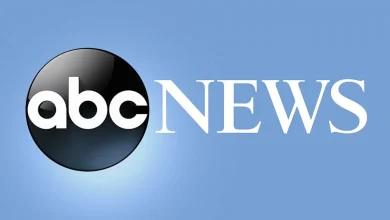JD Vance addresses possible presidential run with Marco Rubio after Trump teases ‘unstoppable’ ticket

NEWYou can now listen to Fox News articles!
Vice President JD Vance appeared on the New York Post’s “Pod Force One with Miranda Devine” on Wednesday, where he was asked about a potential presidential ticket with Secretary of State Marco Rubio in 2028.
Speculation about a possible Vance-Rubio ticket grew after President Donald Trump called the pair “unstoppable” while speaking to reporters aboard Air Force One on Monday.
Vance revealed that he spoke with Trump about the prospect of running alongside Rubio in 2028 over lunch about six months ago.
“We try to get lunch every couple of weeks just to catch up on what’s going on and talk about things,” the vice president said of his meetings with Trump.
VANCE ISSUES MIDTERM WARNING, SAYS DEMOCRATS’ ANGER COULD DRIVE 2026 TURNOUT
Vice President JD Vance appears on “Pod Force One with Miranda Devine” on Wednesday, Oct. 29, 2025. (Screenshot/”Pod Force One with Miranda Devine”)
“[Trump] mentioned it probably six months or so ago,” Vance said of the possible Vance-Rubio ticket. “And I mentioned it to the secretary in jest, but it feels so premature because we’re still so early.”
“And what I always say to people is, if we take care of business, the politics will take care of itself,” he continued. “And we’re nine months into this thing. We’ve done a lot of good.”
Although the vice president expressed that the administration has done a lot of good work over the past nine months, he acknowledged that there is “a lot more work to do,” specifically in addressing the “affordability crisis” left over from the Biden administration.
2028 LOOKS LIKE TROUBLE FOR DEMOCRATS — AND REPUBLICANS ARE POISED TO CAPITALIZE
President Donald Trump, Vice President JD Vance and Secretary of State Marco Rubio during a meeting with Israeli Prime Minister Benjamin Netanyahu in the Oval Office of the White House on April 7, 2025. (Saul Loeb/AFP via Getty Images)
“Again, we’ve chipped away at that problem, but there’s a lot more work to do there. So my attitude is, the American people elected me to be vice president. I’m going to work as hard as I can to make the president successful over the next three years and three months,” Vance said.
“And if we get to a point where something else is in the offing, let’s handle it then. But let’s at least get through the next couple of years and do good work for the American people before we talk about politics,” he added.
Considering Rubio is 13 years Vance’s senior and has run for president in the past, Devine asked the vice president whether there would be any “tension” between the pair over who would run as president and who would run as vice president.
Vance denied that there would be any tension between him and Rubio if they were to run together, adding that the secretary of state is his “best friend in the administration.”
CLICK HERE FOR MORE COVERAGE OF MEDIA AND CULTURE
Vice President JD Vance speaks with reporters in the James Brady Press Briefing Room at the White House, Oct. 1, 2025. (Evan Vucci/AP Photo)
“He and I work a lot together,” he continued. “A lot of the good work that we’ve been able to do as an administration is because we’re all able to work together.”
The vice president told Devine that worrying too much about politics “makes you worse at the job that you have,” and that he has never woken up and thought to himself, “How do I make myself president of the United States?”
CLICK HERE TO GET THE FOX NEWS APP
“What I wake up and think to myself is, ‘How do I do a good job as vice president?’” Vance said. “And I think Marco Rubio asks himself, ‘How do I do a good job as secretary of state?’ And that should be the question that each of us keeps on asking ourselves.”





